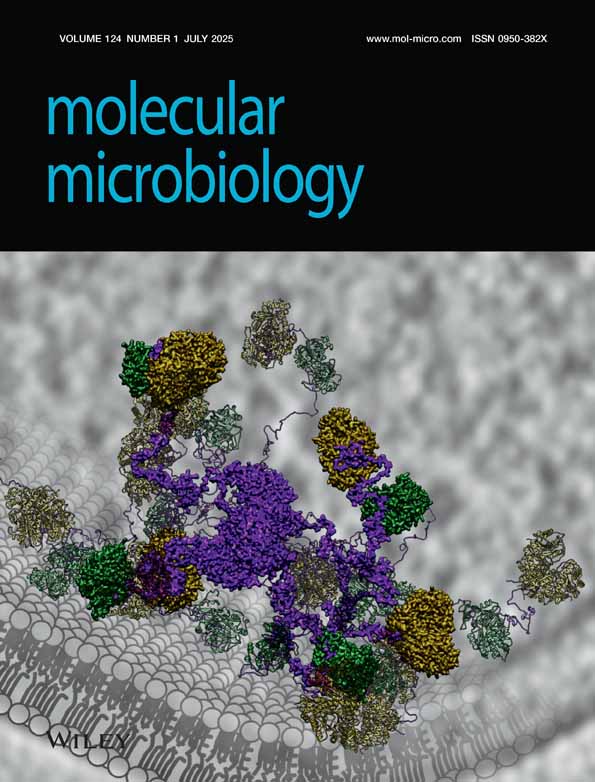The amino acid sequence of a Bacillus subtilis phosphoprotein that matches an orfY-tsr coding sequence
Summary
Bacillus subtilts contains a 30 kDa protein which was phosphorylated during late vegetative growth and sporulation. The sequence for the N-terminal 16 amino acids was found to be identical to the predicted sequence for the N-terminus of a small open reading frame, orfY, but diverged from the predicted sequence thereafter. The orfY region was resequenced and contained one less adenine residue than previously reported, resulting in an open reading frame from within orfy through the entire coding region for tsr which follows orfY. The predicted orfY-tsr amino acid sequence showed 24% identity to Escherichia coll fructose–1,6-bisphosphate aldolase. Two mutants in the tsr region had 2–5% of wild-type aldolase and the nucleotide sequences showed missense mutations. These results indicate that orfY-tsr encodes aldolase and should be renamed fba 1.




